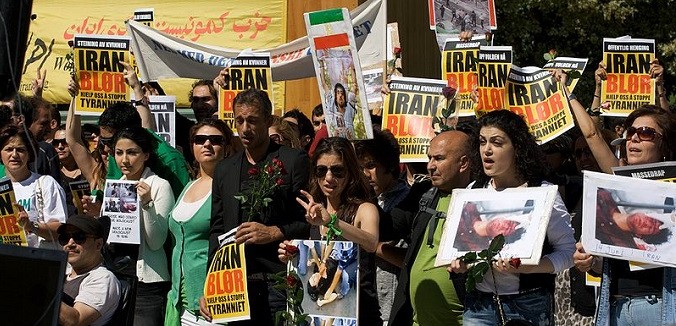A Saturday article in the Washington Post paints a grim picture of the Iranian opposition as the country gears up for its June 14th elections:
As Iran prepares to elect a new president, the anti-establishment energy that drove violent protests four years ago has disappeared, quashed by the heavy-handed crackdown in 2009 that followed Mahmoud Ahmadinejad’s contested reelection. The unlikely leaders of that opposition movement, Mir Hossein Mousavi and Mehdi Karroubi, have been under house arrest since 2011, and most of the student leaders and activists who helped organize the rallies are either in prison or living abroad… there are no visible signs inside the country of those who led the protests.
The Post also quotes a protesters who suggests that “those opposed to the current government have no one to look to for guidance.” Iranian officials stack elections by formally excluding opposition candidates. Reports surfaced as early as January that Mousavi and Karroubi had been excluded for “atrocities against the ruling system and the nation.”
Meanwhile former Iranian president Mohammad Khatami, who was seen as a relative moderate, announced last week that he would not be running due to inevitable hardliner pressure:
“One could consider standing if there was the slightest sign of change, but unfortunately there is no evidence of this,” Mr Khatami told Bahar News, a reformist website. Moreover, he said, Iran’s ruling hardliners would not allow him to run, and if he opposed them they would make the people pay the price. “The reality is that they will not allow me to enter the political scene,” Mr Khatami told a gathering of veterans from the Iran-Iraq war. “Personally, I will not be able to tolerate the costs that will be imposed on the country and people because of my decision to run.”
Some foreign policy analysts have suggested that nuclear negotiations will remain deadlocked until Iran’s election, but that the West can look forward to more positive responses in the poll’s aftermath. The country’s top nuclear negotiator had already emphasized the opposite – that the Islamic republic will harden its negotiation stance regarding Iran’s atomic program – but the theory has persisted in some quarters.
The electoral marginalization of challengers to the Iranian regime may make it difficult for analysts to sustain that position.
[Photo: Kjetil Ree / WikiCommons]




